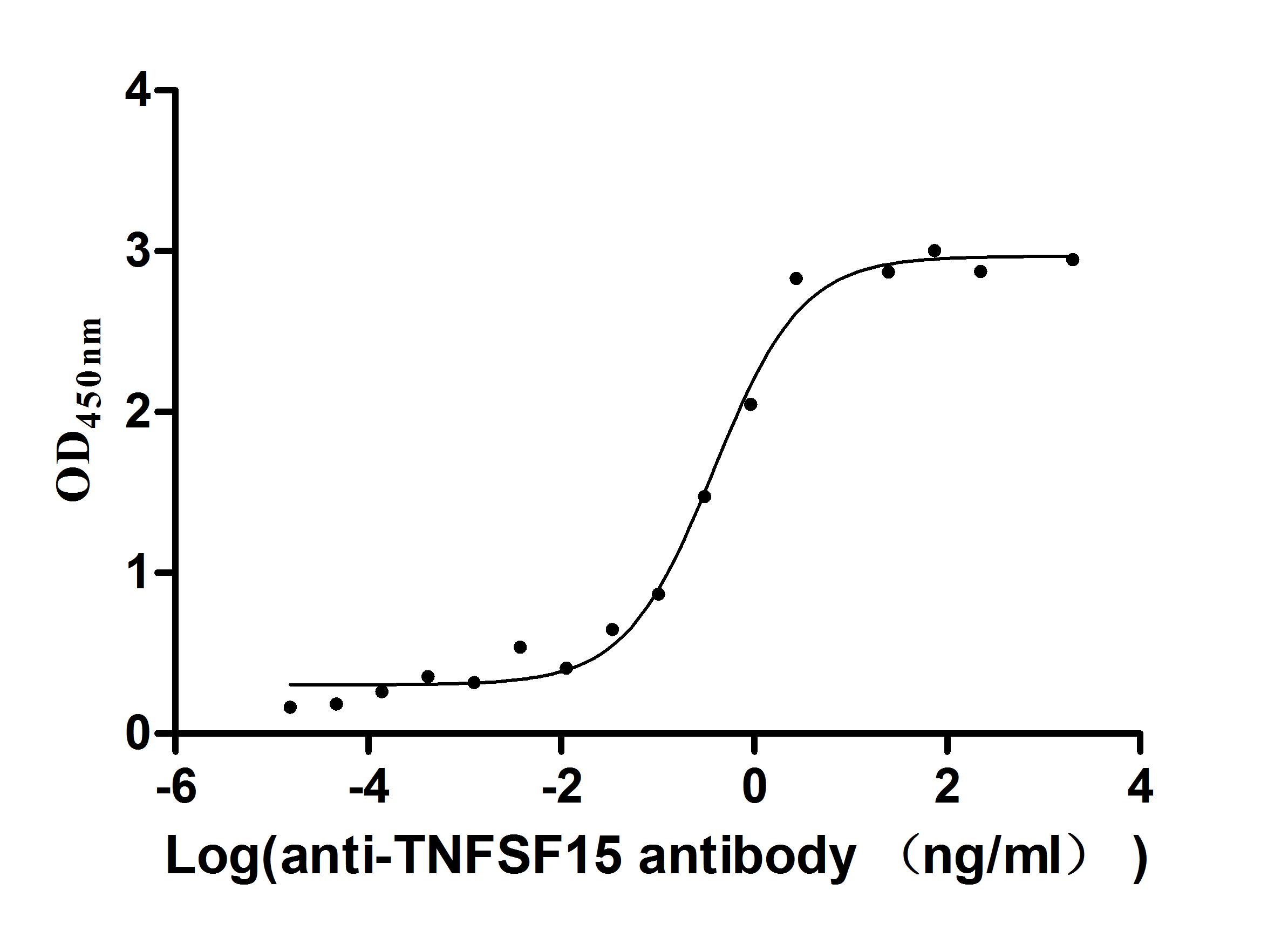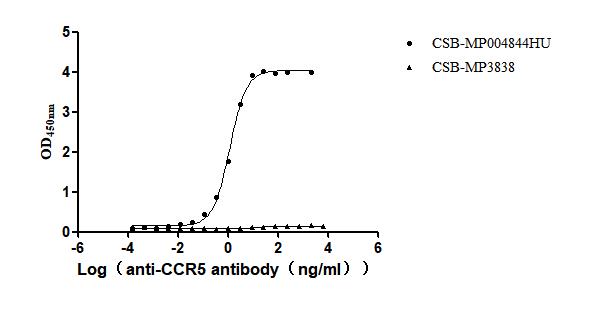Recombinant Human 11-beta-hydroxysteroid dehydrogenase type 2 (HSD11B2)
-
货号:CSB-EP010765HU
-
规格:
-
来源:E.coli
-
其他:
-
货号:CSB-EP010765HU-B
-
规格:
-
来源:E.coli
-
共轭:Avi-tag Biotinylated
E. coli biotin ligase (BirA) is highly specific in covalently attaching biotin to the 15 amino acid AviTag peptide. This recombinant protein was biotinylated in vivo by AviTag-BirA technology, which method is BriA catalyzes amide linkage between the biotin and the specific lysine of the AviTag.
-
其他:
-
货号:CSB-BP010765HU
-
规格:
-
来源:Baculovirus
-
其他:
-
货号:CSB-MP010765HU
-
规格:
-
来源:Mammalian cell
-
其他:
产品详情
-
纯度:Greater than 85% as determined by SDS-PAGE.
-
基因名:HSD11B2
-
Uniprot No.:
-
别名:11 beta HSD2; 11 beta hydroxysteroid dehydrogenase type 2; 11 DH2; 11-beta-HSD2; 11-beta-hydroxysteroid dehydrogenase type 2; 11-DH2; AME; AME1; Corticosteroid 11 beta dehydrogenase isozyme 2; Corticosteroid 11-beta-dehydrogenase isozyme 2; DHI2_HUMAN; HSD11B2; HSD11K; HSD2; Hydroxysteroid 11 beta dehydrogenase 2; Hydroxysteroid 11 beta dehydrogenase isoenzyme 2; NAD dependent 11 beta hydroxysteroid dehydrogenase ; NAD-dependent 11-beta-hydroxysteroid dehydrogenase; SDR9C3; Short chain dehydrogenase/reductase family 9C; member 3
-
种属:Homo sapiens (Human)
-
蛋白长度:Full length
-
表达区域:1-405aa
-
氨基酸序列MERWPWPSGGAWLLVAARALLQLLRSDLRLGRPLLAALALLAALDWLCQRLLPPPAALAVLAAAGWIALSRLARPQRLPVATRAVLITGCDSGFGKETAKKLDSMGFTVLATVLELNSPGAIELRTCCSPRLRLLQMDLTKPGDISRVLEFTKAHTTSTGLWGLVNNAGHNEVVADAELSPVATFRSCMEVNFFGALELTKGLLPLLRSSRGRIVTVGSPAGDMPYPCLGAYGTSKAAVALLMDTFSCELLPWGVKVSIIQPGCFKTESVRNVGQWEKRKQLLLANLPQELLQAYGKDYIEHLHGQFLHSLRLAMSDLTPVVDAITDALLAARPRRRYYPGQGLGLMYFIHYYLPEGLRRRFLQAFFISHCLPRALQPGQPGTTPPQDAAQDPNLSPGPSPAVAR
-
蛋白标签:Tag type will be determined during the manufacturing process.
The tag type will be determined during production process. If you have specified tag type, please tell us and we will develop the specified tag preferentially. -
产品提供形式:Lyophilized powder
Note: We will preferentially ship the format that we have in stock, however, if you have any special requirement for the format, please remark your requirement when placing the order, we will prepare according to your demand. -
复溶:We recommend that this vial be briefly centrifuged prior to opening to bring the contents to the bottom. Please reconstitute protein in deionized sterile water to a concentration of 0.1-1.0 mg/mL.We recommend to add 5-50% of glycerol (final concentration) and aliquot for long-term storage at -20℃/-80℃. Our default final concentration of glycerol is 50%. Customers could use it as reference.
-
储存条件:Store at -20°C/-80°C upon receipt, aliquoting is necessary for mutiple use. Avoid repeated freeze-thaw cycles.
-
保质期:The shelf life is related to many factors, storage state, buffer ingredients, storage temperature and the stability of the protein itself.
Generally, the shelf life of liquid form is 6 months at -20°C/-80°C. The shelf life of lyophilized form is 12 months at -20°C/-80°C. -
货期:Delivery time may differ from different purchasing way or location, please kindly consult your local distributors for specific delivery time.Note: All of our proteins are default shipped with normal blue ice packs, if you request to ship with dry ice, please communicate with us in advance and extra fees will be charged.
-
注意事项:Repeated freezing and thawing is not recommended. Store working aliquots at 4°C for up to one week.
-
Datasheet :Please contact us to get it.
相关产品
靶点详情
-
功能:Catalyzes the conversion of cortisol to the inactive metabolite cortisone. Modulates intracellular glucocorticoid levels, thus protecting the nonselective mineralocorticoid receptor from occupation by glucocorticoids.
-
基因功能参考文献:
- Sequence defects (16q22.1) cause Monogenic Hypertension Syndrome in children (with muscle weakness in severe forms)as result of apparent mineralocorticoid excess. PMID: 29229168
- High systemic 11beta-HSD2 activity in preeclampsia but not in intrauterine growth retardation suggests an increased cortisol deactivation in maternal tissue in preeclampsia rather than in the placenta. PMID: 29523277
- Analyses demonstrated a trend in the association between maternal trait anxiety and depression symptoms with placental gene expression of NR3C1. We found a significant interaction with maternal ethnicity. In Caucasians only, prenatal trait anxiety and depressive symptoms were associated with an increase in placental NR3C1 expression, and prenatal life events were associated with a down regulation of HSD11B2 PMID: 29100173
- mutations that allow the formation of an inactive dimer, alter substrate/coenzyme binding, or impair structural stability of HSD11B2 yield severe apparent mineralocorticoid excess (AME). In contrast, mutations that cause an indirect disruption of substrate binding or mildly alter intramolecular interactions result in type 2 AME. PMID: 29229831
- Six sequence variations were observed. Four mutations were indicated in the coding region of HSD11B2 and the other two in 3'-UTR. Two SNPs: c.468C > A and c.534G > A were found to be in total disequilibrium. High variability in HSD11B2 sequence was indicated in the study population, but the relevance of observed SNPs to gestational hypertension or pre-eclampsia development was not confirmed. PMID: 27686600
- the role of 11beta-HSD2 in determining birth weight PMID: 28502862
- SUMOylation of 11beta-HSD2 at residue K266 modulates cortisol-mediated MR nuclear translocation independently of effects on transactivation. PMID: 28938454
- 11beta-HSD2 activity is not reduced in patients with drug resistant hypertension, suggesting that variation in the conversion of cortisol to cortisone does not contribute to development of antihypertensive treatment resistance. PMID: 28180242
- abundantly localized in syncytial layer of the chorionic villi and the decidual epithelium PMID: 27697223
- The data demonstrate for the first time that 11b- HSD2 plays a key role in the pathophysiology of malignant epidermal cells. PMID: 28797028
- DNA sequence analysis of affected members of Apparent mineralocorticoid excess family revealed homozygous c.799A>G mutations within exon 4 of HSD11B2, corresponding to a p.T267A mutation of 11betaHSD2. PMID: 27526338
- activation of Hedgehog signaling is crucial for the upregulation and maintenance of 11beta-HSD2 expression in placenta PMID: 27379371
- Rac1 GTPase regulates 11beta-HSD2 expression, mineralocorticoid receptor activation, and mineralocorticoid receptor-mediated pro-fibrotic signaling. PMID: 28320863
- enhancer of zeste homolog 2 (EZH2) accounts for the silence of 11beta-HSD2 expression via trimethylation of histone H3 lysine 27 at the promoter of the 11beta-HSD2 gene. PMID: 28302719
- Sensitivity to glucocorticoids did not appear to be mediated by changes in the expression of the beta variant of the glucocorticoid receptor or the 11-beta hydroxysteroid dehydrogenase 2 isozyme. PMID: 26963327
- Review of the role of HSD11B2 in pregnancy complications, fetal diseases, and later life morbidity. PMID: 27018008
- Since increased DNA methylation in HSD11B2 and FKBP5 are seen in a minority of bisulfite sequencing clones, these epigenetic changes, and functional consequences, may affect subpopulations of placental cells. PMID: 27013342
- significant positive correlation between DNA methylation of 11beta-HSD2 CpG 1 in infants and maternal sensitivity. PMID: 26822444
- The 11beta-HSD2 expression decreased in pre-eclamptic women of Chinese Han ethnicity, but was not interrelated with the promoter methylation status. PMID: 25331012
- zearalenone is a selective inhibitor of HSD11B2, implying that this agent may cause excessive glucocorticoid action in local tissues such as kidney and placentas. PMID: 26798634
- Infants with the high-risk neurobehavioral profile showed more methylation than infants with the low-risk neurobehavioral profile at CpG3 for NR3C1 and less methylation of CpG3 for HSD11B2. PMID: 26585459
- The CA-repeat length did not influence BP levels or serum F/E ratios in pediatric subjects. However, the serum F/E ratio was associated with BP, suggesting a role of 11betaHSD2 in mineralocorticoid hypertension. PMID: 25907225
- growth potential of fetus related to the 11beta-HSD2 expression in the placenta, and 11beta-HSD2 expression related to the trace metals status of the mother PMID: 26462907
- maternal depression and anxiety may impact on fetal programming by down-regulating HSD11B2, and antidepressant treatment alone is unlikely to protect against this effect. PMID: 26593902
- Data show that glucocorticoid response genes NR3C1, ADCYAP1R1 and HSD11B2 were relatively hypomethylated whereas FKBP5 was hypermethylated. PMID: 26343289
- No interaction was found between HSD11B2 and exposure during pregnancy, but individuals with the A allele of rs5479 had an increased risk of schizophrenia after exposure at age 3-9 years PMID: 26115144
- 11betaHSD2 inhibition suppressed lung tumor growth and invasion in association with increased tissue active glucocorticoid levels, decreased COX-2 expression, inhibition of ERK and mTOR signaling pathways. PMID: 26011146
- A novel HSD11B2 functional mutation accounting for an Ala221Gly substitution causes Apparent mineralocorticoid excess. The hypertension phenotype is also epigenetically modulated by HSD11B2 methylation in subjects heterozygous for the mutation PMID: 26126204
- infants with low NR3C1 methylation but high HSD11B2 methylation had lower excitability scores; those with high NR3C1 methylation but low HSD11B2 methylation had more asymmetrical reflexes PMID: 25459891
- Insulin reduced the 11beta-HSD2 activity in cancer colon cell lines (HCT116, SW620 and HT-29) at the transcriptional level, in a time and dose dependent manner. PMID: 25133511
- Preeclampsia reduces methylation level at fetal HSD11B2 promoter. PMID: 25200528
- hypertensivesThe 11bHSD2 polymorphism-derived allele frequency was very low, completely absent in controls and no homozygous mutants were found PMID: 25572238
- variants of HSD11B2 may be not a cause of obesity. PMID: 24729284
- The inverse association of offspring 11beta-HSD-2 activity with maternal age at Holocaust exposure is consistent with the influence of glucocorticoid programming. PMID: 24971590
- No correlation was observed between the placental gene expression of 11bHSD-2 and infantile growth at 10 months of age. PMID: 24147632
- Results show a link between the site-specific methylation of placental 11beta-hydroxysteroid dehydrogenase (HSD11B2) promoter and the development of intrauterine growth restriction (IUGR). PMID: 24129435
- the downregulation of 11HSD2 gene expression is a typical feature of the development of colorectal polypous lesions and their transformation into colorectal adenocarcinoma PMID: 24189979
- fetal HSD11B2[CA]n microsatellite polymorphism of the HSD11B2 gene in healthy uncomplicated human pregnancy is associated with maternal cortisol concentration PMID: 24685985
- placental 11bHSD2 expression is significantly reduced in pregnancies complicated by intrahepatic cholestasis of pregnancy. PMID: 24262137
- Increased glucocorticoid exposure as a consequence of reduced 11beta-hydroxysteroid dehydrogenase type 2 activity is likely to be a critical determinant of growth in early life PMID: 24517145
- analysis of placental 11-B hydroxysteroid dehydrogenase methylation patterns and how they relate to prenatal socioeconomic adversity PMID: 24040322
- Data suggest that placental HSD11B2 mRNA expression during prolonged pregnancy is higher in women who do not respond to induction of labor than in responders and in women who enter labor spontaneously. PMID: 24054540
- Data suggest that expression of HSD11B2 in placenta/trophoblast cells is regulated, in part, via the ERK1/2 (mitogen-activated protein kinases 3/1) signaling pathway; this pathway mediates cadmium chloride repression of placental HSD11B2 activity. PMID: 23966319
- HSD11B2 CA-repeat genotype is not associated with hypertension itself, but with renal sodium excretion, probably through salt intake/appetite. PMID: 23446772
- 11beta-HSD2 expression can be modulated by PPARalpha and PPARgamma in placental trophoblasts through Sp-1 PMID: 24169559
- HSD11B1 and HSD11B2 single nucleotide polymorphisms in hypertensive disorders in pregnancy. PMID: 23659736
- Genotyping indicated no hypertension related mutations in the coding region and short introns of HSD11B2 PMID: 23303402
- genetic association studies in Japan: Data suggest that in normal subjects total CA-repeat length in HSD11B2 is negatively correlated with insulin secretion; subjects with longer CA repeats in HSD11B2 are more susceptible to glucose intolerance. PMID: 23357976
- Data suggest that interaction of p300/Sp1 (lysine acetyltransferase 2B/transcription factor Sp1) with HSD11B2 promoter plays crucial role in histone acetylation in syncytiotrophoblasts; these interactions may be important in placentation. PMID: 23714681
- cortisol/cortisone ratio increased with age, but cortisone decreased, suggesting decrease in 11beta-HSD2 activity. Results suggest that cortisol-mediated activation of mineralocorticoid receptor may explain blood pressure increase in elderly subjects. PMID: 23443726
显示更多
收起更多
-
相关疾病:Apparent mineralocorticoid excess (AME)
-
亚细胞定位:Microsome. Endoplasmic reticulum.
-
蛋白家族:Short-chain dehydrogenases/reductases (SDR) family
-
组织特异性:Expressed in kidney, pancreas, prostate, ovary, small intestine and colon. At midgestation, expressed at high levels in placenta and in fetal kidney and, at much lower levels, in fetal lung and testis.
-
数据库链接:
HGNC: 5209
OMIM: 218030
KEGG: hsa:3291
STRING: 9606.ENSP00000316786
UniGene: Hs.1376
Most popular with customers
-
Recombinant Paguma larvata Angiotensin-converting enzyme 2 (ACE2), partial (Active)
Express system: Mammalian cell
Species: Paguma larvata (Masked palm civet)
-
Recombinant Human Epithelial discoidin domain-containing receptor 1 (DDR1), partial (Active)
Express system: Mammalian cell
Species: Homo sapiens (Human)
-
Recombinant Human Glucagon-like peptide 1 receptor (GLP1R), partial (Active)
Express system: Mammalian cell
Species: Homo sapiens (Human)
-
Recombinant Macaca fascicularis C-type lectin domain family 4 member C(CLEC4C), partial (Active)
Express system: Mammalian cell
Species: Macaca fascicularis (Crab-eating macaque) (Cynomolgus monkey)
-
Recombinant Human Tumor necrosis factor ligand superfamily member 15(TNFSF15) (Active)
Express system: Mammalian cell
Species: Homo sapiens (Human)
-
Express system: Mammalian cell
Species: Homo sapiens (Human)
-
Recombinant Human C-C chemokine receptor type 5 (CCR5)-VLPs (Active)
Express system: Mammalian cell
Species: Homo sapiens (Human)


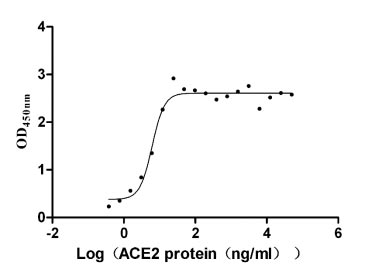

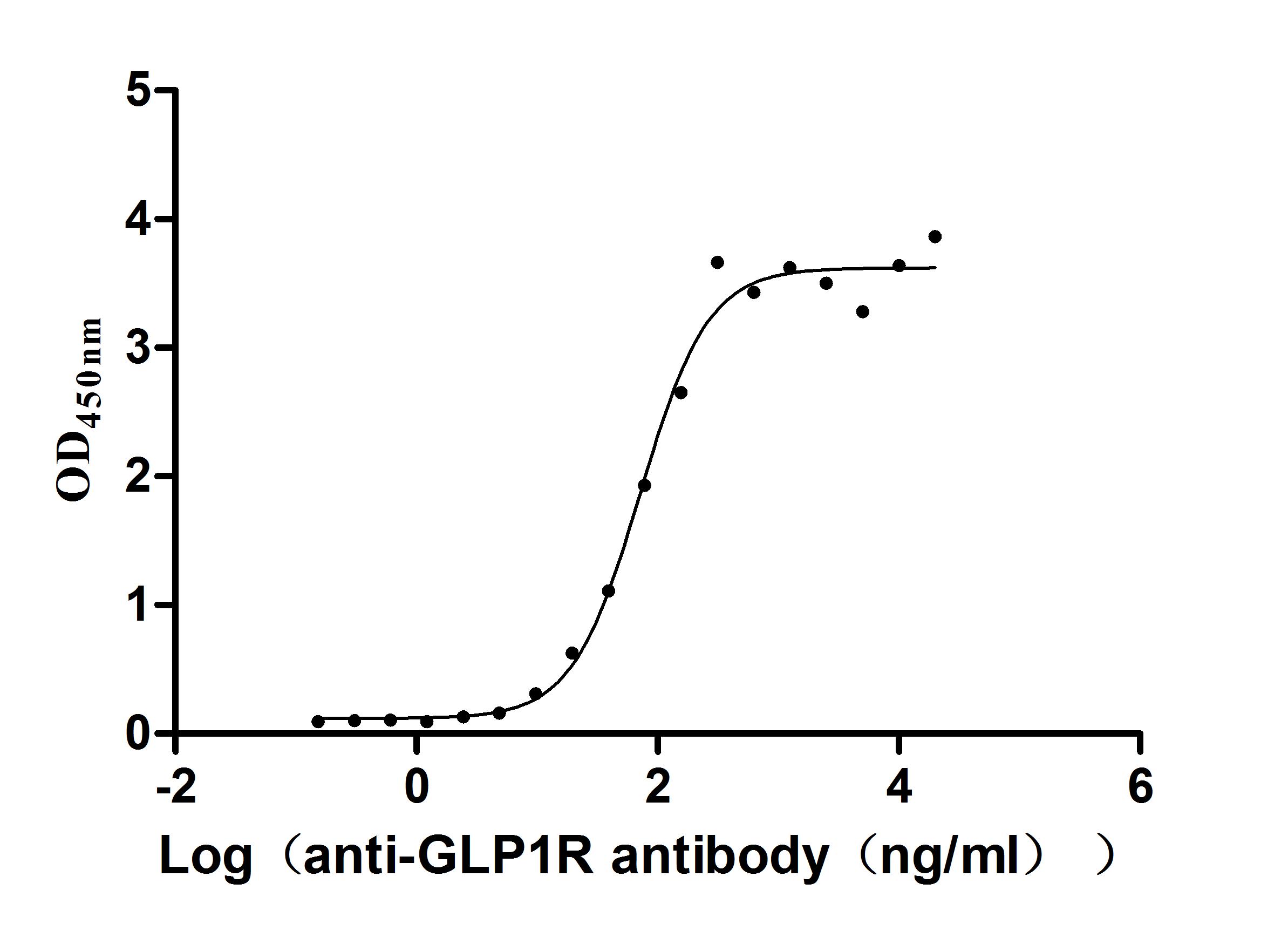
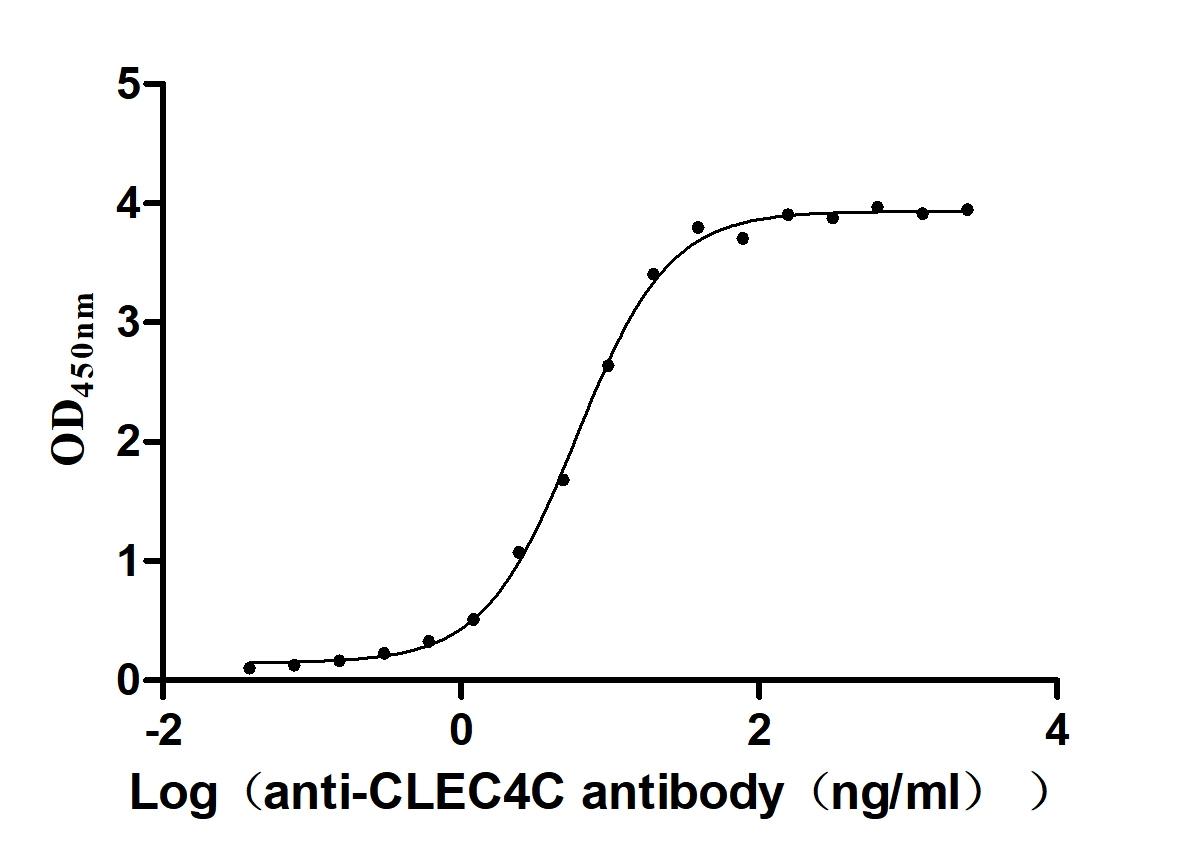
-AC1.jpg)
